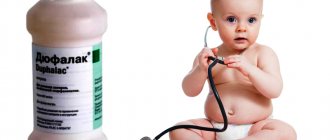Metronidazole is the most popular drug from the group of semisynthetic antibacterial drugs with antimicrobial and antiprotozoal effects. Metronidazole, as the drug of choice, is included in classical regimens for the treatment and prevention of mixed bacterial infections, postoperative complications and infectious diseases caused by anaerobic microorganisms. It is necessary to take the medicine strictly in accordance with the prescribed dosage regimen, since an overdose of Metronidazole can not only cause serious complications in the digestive system, but also disrupt the functioning of the central and peripheral nervous systems.
Symptoms of overdose
Metronidazole overdose is common. Most often it occurs when patients forget about taking the drug in a timely manner and resort to increasing the dose of its use. This leads to a consequence such as an overdose. Also, drug poisoning occurs in patients who take the drug in large doses for a long time. The results range from small changes in the functionality of internal organs to serious damage to the nervous system.
Symptoms of metronidazole overdose:
- nausea or diarrhea;
- Impaired sense of taste;
- Belching;
- Stomatitis or glossitis (inflammation of the tongue);
- Deterioration or complete loss of appetite;
- Muscle pain or bone pain;
- Minor change in heart function.
In case of a moderate overdose of the drug, vision deterioration may occur, in the form of myopia or the appearance of a grid on the eyes.
Allergies manifest themselves in the form of:
- Skin inflammation;
- Erythema;
- Skin itching.
Allergy in the form of epidermal detachment requires immediate medical attention in the toxicology department. With moderate overdose of metronidazole, damage to the nervous system is possible.
Symptoms of nervous system damage:
- Headache;
- Lethargy;
- Heaviness in the muscles;
- Convulsions;
- Impaired gait stability;
- Slowing down speech.
In case of overdose, drug-induced fever may occur in the form of swelling of the mucous membranes, skin and subcutaneous tissue.
Poisoning can also affect the patient’s psychological state, thereby causing hallucinations, irritability and clouding of consciousness.
When drug intoxication passes, it is recommended to consult a doctor to find out the reasons for personal intolerance to the drug. This will help avoid poisoning in the future.
Other signs
In addition to the listed symptoms, the victim may exhibit other negative reactions to exceeding the permissible amount of the drug or when taking it regularly. Possible manifestations of allergic reactions:
- The occurrence of itching and urticaria.
- Dermatitis.
- Erythema.
The danger of such a reaction is that with prolonged poisoning of the body, detachment of the upper layer of skin may occur. If such a symptom appears, you should under no circumstances delay visiting a doctor; treatment is carried out only in a hospital setting.
Moderate and severe poisoning involves a negative effect on the human nervous system. At the same time, characteristic signs of the disease also appear:
- The appearance of severe dizziness, frequent, worsening headaches.
- Sleep disorders manifested in insomnia or increased sleepiness.
- Convulsive states throughout the victim’s body.
- Numbness and tingling in the muscles caused by disruption of the nerve endings.
- The appearance of severe heaviness in the limbs.
- Serious damage to brain cells.
- Coordination of movements decreases, muscles are more difficult to control.
- Speech disturbances are noticeable.
- Eye movements become more frequent and faster.
The negative impact occurs in almost all systems of the body, and the mental state of the victim also suffers - the patient may experience irritability and confusion. Allergic reactions can cause anaphylactic shock, the consequences of which are often irreversible - not only a person’s health is at risk, but also his life.
Metronidazole overdose in children
Children are often susceptible to diseases for which the specified medication guarantees a greater chance of recovery.
Its use is especially effective in the treatment of diseases such as giardiasis. The course of treatment with the drug is carried out exclusively after medical consultation. The child must be over two years old!
The dose of the drug is prescribed by the doctor for a specific case, strictly individually. The responsibilities of parents include fulfilling the medical orders of doctors. Strict control and supervision of medication intake is due to the fact that it is much more difficult for a child’s body to adapt to the new components contained within the drug. Therefore, an overdose of the drug leads to intoxication in children.
Features of overdose:
- Nausea and vomiting;
- Diarrhea;
- Pain or discomfort in the abdominal area;
- Dry mouth;
- Strong crying;
- Convulsions (mainly at night);
- Insomnia.
Also, signs of overdose include a negative reaction of children to external stimuli (light or sound). Constantly monitor the child's condition if symptoms of intoxication are detected.
Before you start using the drug, consult your doctor about how to react in your case if the drug has a negative effect.
Side effects of taking the drug
To avoid the development of resistance of microorganisms, the drug can be taken exclusively for the treatment of infections of metronidazole-sensitive strains. In the vast majority of cases, the course of antibiotics is 7 days. After diagnosing the body, the doctor will prescribe the correct dosage of the drug.
According to reviews, Metronidazole may cause the following side effects:
- Severe nausea, vomiting, loss of appetite.
- In chronic pancreatitis - increased pain in the pancreas.
- Dysbacteriosis.
- Dizziness, loss of consciousness, deterioration in coordination of movements.
- Incontinence, dark brown urine.
- Allergic skin rashes.
- Apathy, insomnia, severe headache.
You should monitor the body's internal sensations when combining Metronidazole with other antibiotics. This can cause a number of undesirable consequences for the body - convulsions, stomatitis, ataxia and increased body temperature.
The medicine should be taken only after meals. In the vast majority of cases, vomiting and nausea are caused by violation of recommendations for taking antibiotics.
The drug is dispensed according to the prescription of the attending physician. It is recommended to store candles in the refrigerator. The shelf life of Metronidazole from the date of release is 24 months.
Physiological disorders
Treatment with Metronidazole requires regular medical supervision, since it is in this way that serious consequences such as poisoning or drug overdose can be prevented. It is important to understand that when the dose is exceeded, the blood begins to change its chemical composition (this can only be determined in special laboratories).
What reaction occurs in the blood?
- Decrease in the level of leukocytes in the blood;
- Decrease in the number of leukocytes;
- Reducing the level of neutrophils in the body;
- There is a disruption in the formation and growth of cells in the human bone marrow.
An overdose of medication has a negative effect on the liver. Various types of anomalies may appear (only a specialist in a medical institution can determine them). These reactions are determined by urine analysis.
Signs of changes in urine:
- Dark color of urine (this is due to increased levels of the substance);
- Pain when urinating (long delays when urinating);
- Inflammation of the bladder (this leads to cystitis).
It is not recommended to take any type of alcohol with Metronidazole! Even a small dose of alcohol can lead to severe alcohol intoxication. Taking a large dose of alcohol (without the provision of qualified specialist assistance) can be fatal.
In case of liver failure, epilepsy or blood disease (mainly in adults), the listed symptoms may intensify, which entails the appearance of additional painful sensations.
It is necessary to immediately resort to treatment (otherwise it will lead to the impossibility of normalizing the body systems).
Basic information
Metronidazole is active against Trichomonas, Giardia, Gardnerella, anaerobic microbes, etc., and in combination with Amoxicycline it has an inhibitory effect on Helicobacter pylori. In this regard, the drug has the following properties:
- antibacterial;
- antiulcer;
- antiprotozoal;
- trichomonacid.
Metronidazole disrupts the respiratory function of pathological microorganisms, which leads to their damage and death. In other types of microbes and protozoa, the drug provokes the destruction of DNA and blocks its synthesis.
After oral administration, the drug is almost completely absorbed into the blood (bioavailability up to 80%) and reaches its maximum concentration after 1-3 hours. Only 10-20% of the active substance circulates in the plasma, and the rest enters the tissues and fluids of the body. The concentration necessary for the therapeutic effect accumulates in salivary fluid, semen and vaginal secretions. In addition, Metronidazole passes into breast milk and crosses the blood-brain and placental barriers.
The drug is metabolized in the liver. Its half-life ranges from 6 to 29 hours. The main breakdown product of Metronidazole also has high antimicrobial and antiprotozoal activity.
The drug is eliminated from the body by the kidneys. If their function is impaired, the active substance accumulates in the blood. Therefore, for people suffering from renal failure, the dosage and frequency of taking the medication is determined individually.
First aid for poisoning
Gastric lavage.
Its implementation is possible only when more than half an hour has passed since taking the medication! The victim is advised to take at least 1 liter of water (or a weak solution of potassium permanganate) for 5-8 minutes, and then induce vomiting.
Gastric lavage for children is NOT recommended with a solution of potassium permanganate . Its slight overdose can lead to a chemical burn to the gastric mucosa.
Stage 2 assistance
Taking sorbents such as: activated carbon, smecta, sorbex, polysorb or white carbon. After this, urgently call an ambulance, or go to the hospital yourself. Taking these drugs is necessary to reduce the absorption of toxic substances into the blood.
Stage 3 assistance
Drink plenty of fluids. This will help normalize the water-salt balance and reduce the load on the kidneys.
Drink water often, but little by little! In case of poisoning of a child (if he refuses to drink water), you can give tea or compote. Try to stay hydrated!
If we are talking about a severe overdose of Metronidazole, you should resort to hemodialysis. With this procedure, the blood is cleansed of toxic substances and completely normalized.
In special cases, an overdose of Metronidazole can be life-threatening (due to a serious imbalance in the structure of internal organs). Prevent drug overdose by following the prescribed treatment regimen!
Metronidazole is an antibiotic. However, despite this, it is often prescribed as a prophylactic against various anaerobic infections. For example, before or after surgery, to prevent the risk of infection. In general, Metronidazole significantly reduces the possibility of any infectious diseases.
General information about the drug
The active ingredient is Metronidazole 250 mg. The medicine is available in white tablets and in the form of a gel and solution for infusion.
How does Metronidazole affect the body and what does it help with? A distinctive feature is the rapid penetration of the active components into the cell, as well as tissues and internal organs. The medicine, penetrating inside the body, begins to interact with the DNA of the cells that caused the disease. The spread of infections is stopped.
Since the active substances of Metronidazole harm only bacterial cells, the human body does not suffer. To achieve results, high doses of medication are often prescribed. If necessary, the dosage is reduced. The tablets are not a food supplement.
The drug penetrates almost completely into the blood. After just a couple of hours, the effect of the treatment composition is observed. The highest concentrations are observed in saliva, genital secretions, lungs, skin, liver and brain. After 7 hours, the drug is almost completely excreted in the urine.
The drug is dispensed in pharmacies only with a doctor's prescription. The shelf life varies from manufacturer to manufacturer and can be 3 or 5 years. The average price for the drug in tablet form is about 100 rubles.
Video: Metronidazole - instructions for use
Read more:
Surgical instruments. Scalpels, surgical knives and their varieties
List of the best antibiotics for food and alcohol poisoning
Signs of kidney cancer
How to remove uric acid from the body: traditional methods
How to quickly induce vomiting after eating at home for weight loss
Article rating:
( 2 ratings, average: 5.00 out of 5)
Share with friends:
You may also be interested in:
Flemoxin poisoning
Excess vitamin C(C)










